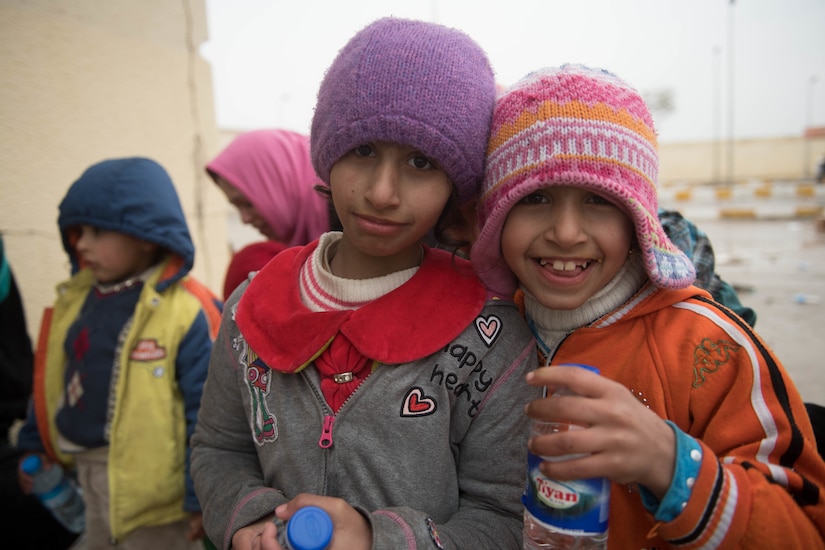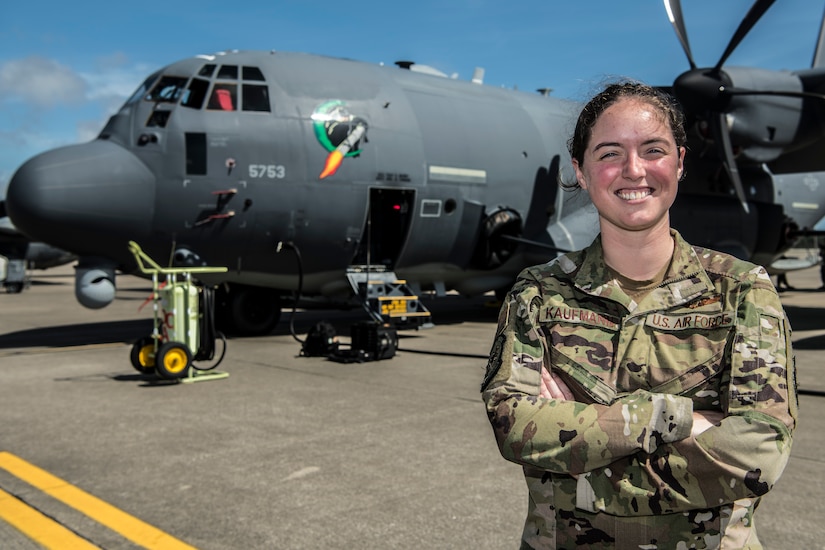Nov. 5, 2020 | , DOD News
"War is Hell" is a famous quote.
Prolonged warfare is hell on women and girls in particular, and the United Nations recognized that fact by passing United Nations Security Council Resolution 1325, on women, peace and security on October 31, 2000.

The resolution recognized the disproportionate impact of conflict on women and girls and it was unanimously passed. The resolution looks to ensure the views, needs and circumstances of women are addressed in areas affected by conflict. Their needs also must be considered in relief efforts after the conflict is over.
DOD officials have embraced the resolution and are bullish about its future in the department.
The resolution compels nations to promote the equal participation of women in issues of peace and security decision-making. The resolution affirms the critical role of women in the prevention and resolution of conflicts. The resolution also calls on nations to recognize women's unique roles and needs in humanitarian response due to disaster or war.
Since 2000, the UN passed 10 related resolutions on women, peace and security, shining a global spotlight on the viewpoints and contributions of more than half the world's population to the issues of peace and security, DOD officials said.
For most of history, security has been a male domain.
Defense and security sectors globally have been slower to adopt the resolution to diplomatic, development and civil society counterparts. But since 2011, when the United States first took on women, peace and security, DOD began thinking about the importance of the resolution in accomplishing its national security objectives, Carolyn Kenney, who helps manage DOD's women, peace and security program from her post in the Pentagon's policy office, said.
"If you are trying to get a better understanding of the operational environment, or you're creating policies that directly impact people on the ground, it's important to incorporate the perspectives and experiences of both men and women," Kenney said during an interview.

Having these perspectives enhances U.S. military operational effectiveness. It is also a bold statement in support of human rights and [it] promotes gender equality, Kenney said.
Women already play key roles across peace and security processes. "From policy perspectives to tactical actions, women are a force multiplier – both globally and in the U.S. — and a force the department simply cannot ignore," she said.
In the United States, it is now law that the government incorporate the needs and perspectives of women in peace and security decision making. This law — implemented through a whole-of-government strategy — demonstrates U.S. leadership on women, peace and security. It strengthens existing and future U.S. government implementation of women, peace and security processes.
DOD works with the State Department, the U.S. Agency for International Development and the Department of Homeland Security to advance U.S. women, peace and security guidance.
Since 2012, the department has made substantial progress towards implementation. "At the strategic and operational level, we now have full-time dedicated subject matter experts in policy and the Joint Staff and at nearly all of the combatant commands, both geographic and functional," she said.
These staff — often called WPS or gender advisors — are the backbone of the department's implementation efforts. "They ensure our department's WPS efforts support our mission and complement the efforts of other interagency partners," Kenney said.
Just this past last year, the Defense Security Cooperation Agency and the Defense Security Cooperation University integrated women, peace and security principles into its training. This effort complements what the services, military departments, and professional military education institutions are doing on the issue.
The DOD women, peace and security program has made great strides, Kenney said. "In its beginning years, the department's WPS program suffered from a lack of funding, authorities and trained personnel — we were the new kids on the block in the U.S. government when it came to WPS," Kenney said. "Now, we're key players at the table."
As part of that importance, DOD released its first WPS strategic framework and implementation plan this past summer.

Women, peace and security was once thought of as solely a "women's issue," Kenney said. It is no longer, and there are opportunities for growth.
The department's approach to mainstreaming WPS where relevant will be key to eliminating the hit-or-miss implementation of the program.
"Since WPS outcomes don't happen overnight, the department's efforts must build on WPS progress each year," Kenney said, "and work to institutionalize key concepts in policy, plans and doctrine so WPS becomes a routine part of how the department does business."
(Editor's Note: Cori Fleser, a women, peace and security advisor on the Joint Staff, served as a subject matter expert and contributor to the writing of this article.)








No comments:
Post a Comment